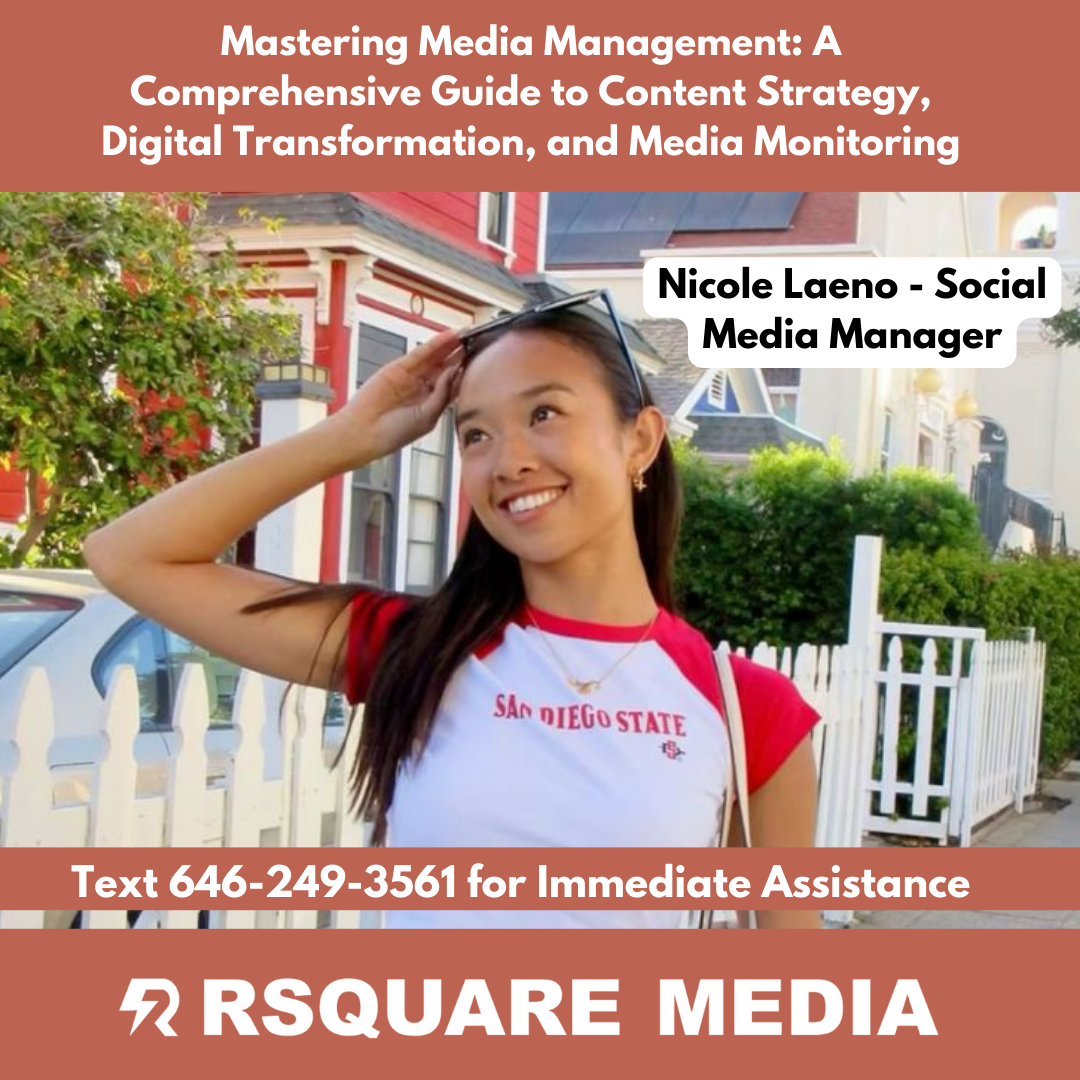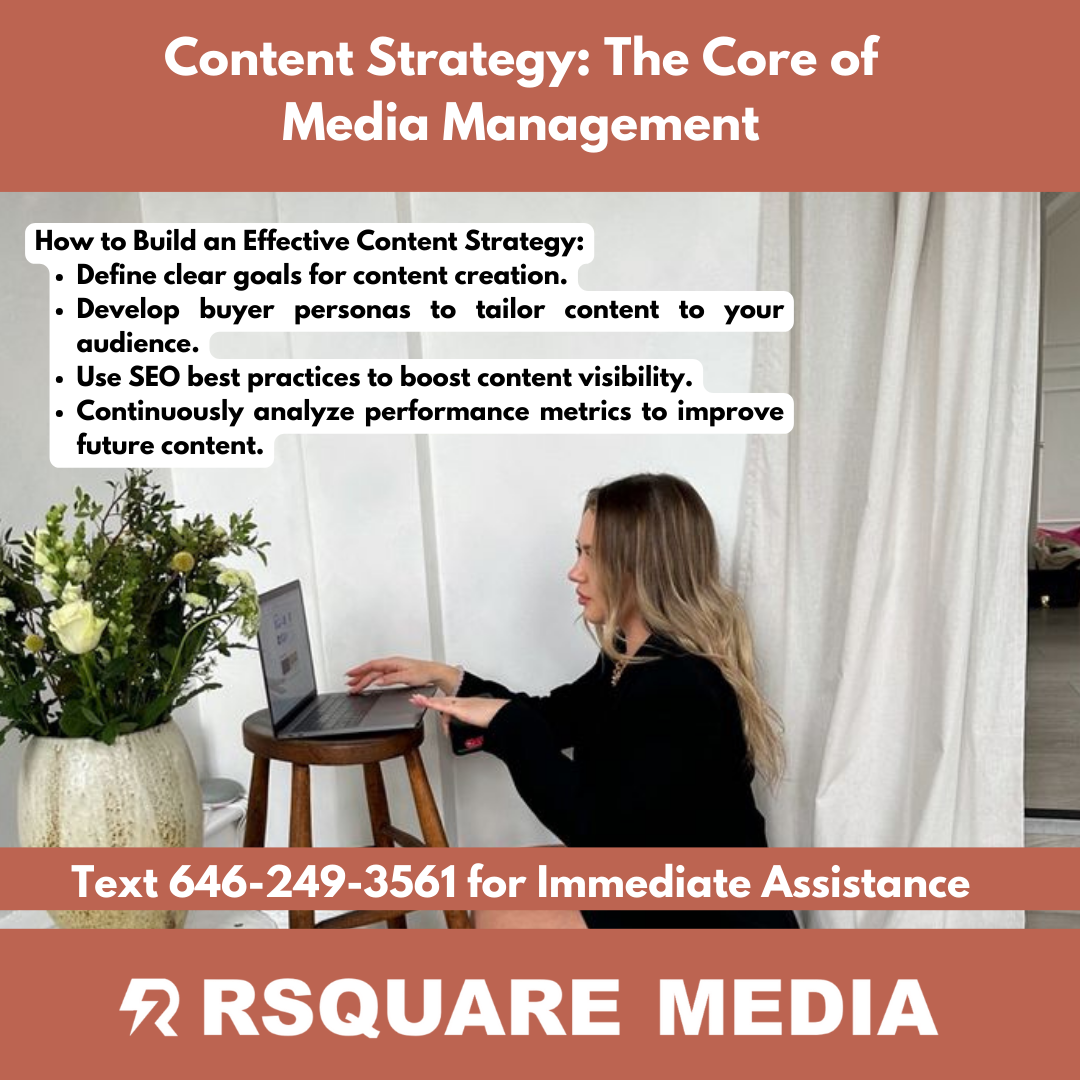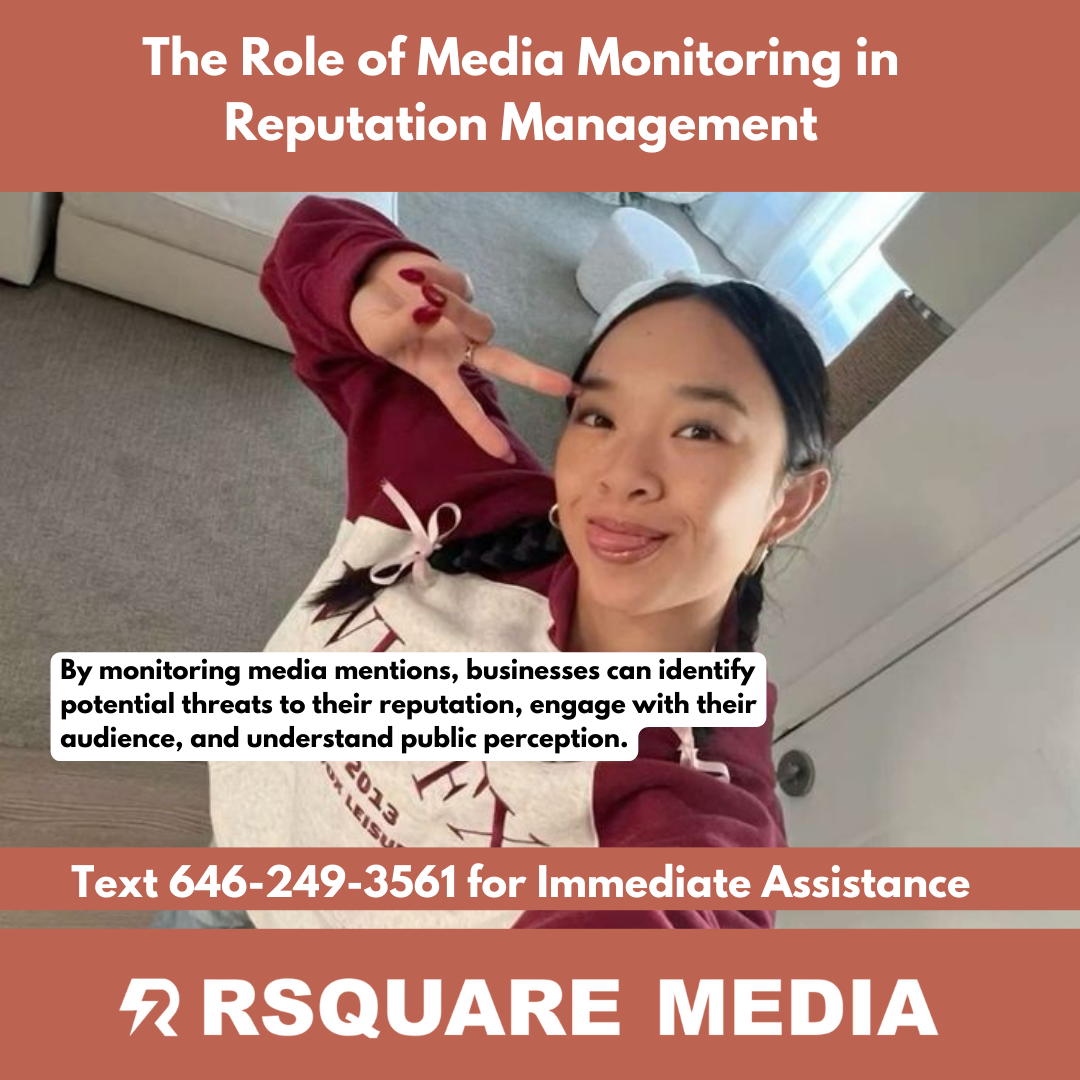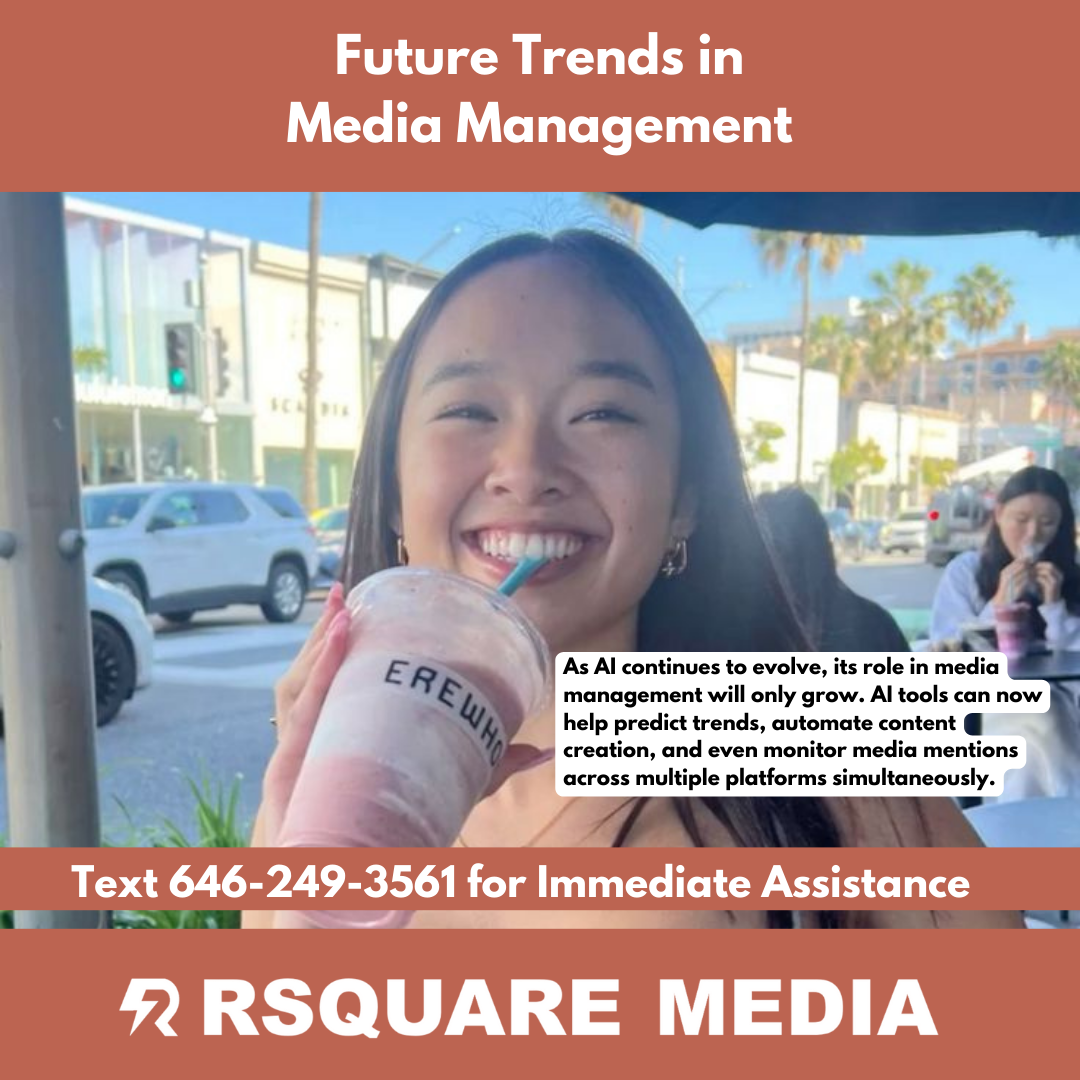Media management is the backbone of any successful digital strategy. In today’s rapidly evolving digital landscape, understanding how to manage your media channels effectively is essential for businesses looking to maintain a strong online presence. From content strategy to digital transformation, the methods and tools employed in managing media can shape your brand’s reputation. This article will dive into key aspects of media management, explore best practices, and provide insights into digital transformation and media monitoring.
I. The Basics of Media Management
What is Media Management?
Media management refers to the process of planning, organizing, and controlling media channels to effectively communicate with target audiences. It includes creating, distributing, and monitoring content across multiple platforms to ensure that brand messaging aligns with overall business goals.
Why is Media Management Important?
Effective media management ensures that businesses can efficiently engage with their target audience, boost brand visibility, and drive sales. Properly managing media channels also helps businesses maintain consistency across their messaging, ensuring that all content is aligned with their values and goals.
II. Content Strategy: The Core of Media Management
What is Content Strategy?
Content strategy is a plan that outlines the type, tone, and style of content a brand will produce and share. It also involves identifying key platforms for content distribution and ensuring that content supports business objectives.
Elements of a Strong Content Strategy
- Audience Research: Understanding your target audience’s interests, behaviors, and pain points.
- Content Creation: Developing high-quality, engaging, and relevant content that resonates with your audience.
- Content Distribution: Choosing the right channels (social media, blogs, videos, etc.) to share content effectively.
- Measurement and Optimization: Tracking content performance and making necessary adjustments to improve reach and engagement.
How to Build an Effective Content Strategy
- Define clear goals for content creation.
- Develop buyer personas to tailor content to your audience.
- Use SEO best practices to boost content visibility.
- Continuously analyze performance metrics to improve future content.
III. Digital Transformation in Media Management
What is Digital Transformation?
Digital transformation is the integration of digital technology into all areas of a business, fundamentally changing how businesses operate and deliver value to customers. In the media, this involves adopting digital tools and platforms to streamline content creation, distribution, and monitoring.
How Digital Transformation Impacts Media Management
- Enhanced Collaboration: Digital tools enable teams to collaborate more efficiently, improving the media creation and approval processes.
- Improved Efficiency: Automation tools can help manage media schedules, content distribution, and analytics more efficiently, saving time and resources.
- Data-Driven Decisions: Digital platforms provide real-time data that can inform content strategy and audience targeting, ensuring that businesses stay relevant and responsive to market trends.
Key Components of Digital Transformation in Media
- Automation: Tools that streamline repetitive tasks like social media posting or email campaigns.
- Cloud Technologies: Storing and managing media content in the cloud for easy access and collaboration.
- AI & Machine Learning: Using AI to personalize content recommendations and improve user engagement.
- Mobile Optimization: Ensuring that content is easily accessible on mobile devices, as a large portion of users engage through smartphones.
IV. The Role of Media Monitoring in Reputation Management
What is Media Monitoring?
Media monitoring involves tracking and analyzing media mentions of a brand or topic. It’s an essential part of reputation management, as it allows businesses to stay informed about what is being said about them in the media.
Why Media Monitoring Matters
By monitoring media mentions, businesses can identify potential threats to their reputation, engage with their audience, and understand public perception. It also provides valuable insights into how well media strategies are performing.
How Media Monitoring Enhances Reputation Management
- Tracking Public Sentiment: Media monitoring helps businesses understand public sentiment about their brand. This can help guide communication strategies to address any negative feedback.
- Crisis Management: Early detection of issues allows businesses to respond quickly and mitigate potential damage to their reputation.
- Competitive Analysis: By monitoring competitors’ media presence, businesses can identify opportunities to improve their own media strategies.
Best Tools for Media Monitoring
- Google Alerts: A simple tool for tracking brand mentions across the web.
- Hootsuite: Offers media monitoring across social media platforms.
- Meltwater: A robust media monitoring platform that tracks traditional and digital media.
- Talkwalker: A tool for real-time social media and news monitoring.
V. The Integration of Media Management with Marketing Strategies
How Media Management Supports Marketing
Media management is closely tied to marketing efforts, as it ensures that content is strategically distributed to promote products, services, or brand values. A well-coordinated media strategy amplifies marketing campaigns and enhances overall customer engagement.
Aligning Media Strategy with Marketing Goals
- Brand Awareness: Consistent messaging across media channels increases brand visibility.
- Lead Generation: Media management helps identify the right audience and distribute content that nurtures leads.
- Customer Engagement: Using social media platforms to engage directly with customers helps build loyalty and trust.
VI. Advanced Media Management: Case Studies and Best Practices
Case Study 1: Apple’s Media Management During iPhone Launches
Apple has mastered the art of media management, particularly during iPhone launches. The company’s ability to build anticipation, manage leaks, and control messaging around its new products is unmatched. Their strategy involves well-timed media releases, influencer partnerships, and exclusive events to generate buzz.
Case Study 2: Nike’s Digital Transformation
Nike has embraced digital transformation by using data and technology to personalize customer experiences. Their media strategy includes a mix of traditional and digital media, with a heavy focus on social media to connect with younger, tech-savvy consumers.
Best Practices in Media Management
- Be Consistent: Consistency in messaging across platforms helps build trust and brand recognition.
- Use Data: Leverage analytics to optimize content and improve engagement.
- Adapt to Change: Be agile and ready to pivot your media strategy based on real-time feedback and market conditions.
VII. Future Trends in Media Management
AI and Automation
As AI continues to evolve, its role in the media will only grow. AI tools can now help predict trends, automate content creation, and even monitor media mentions across multiple platforms simultaneously.
The Rise of Interactive Content
Interactive content, such as polls, quizzes, and live streaming, is becoming more popular as consumers demand more engaging and immersive experiences.
Sustainability in Media
Sustainability is becoming an important factor in media management. Consumers are increasingly looking for brands that align with their values, including environmental sustainability. Media strategies that emphasize a brand’s commitment to sustainability will resonate with these audiences.

Effective media managing is essential for businesses to stay competitive in today’s digital landscape. From content strategy to digital transformation and media monitoring, a well-executed media strategy can build brand reputation, drive engagement, and improve overall business performance. By staying ahead of trends and leveraging the right tools, businesses can ensure their message reaches the right audience, in the right way.
If you need help navigating the complexities of media management, digital transformation, or reputation management, contact Rsquare Media for a free consultation today. Visit rsquaremedia.com or book a session via calendly.com/rsquaremedia.




